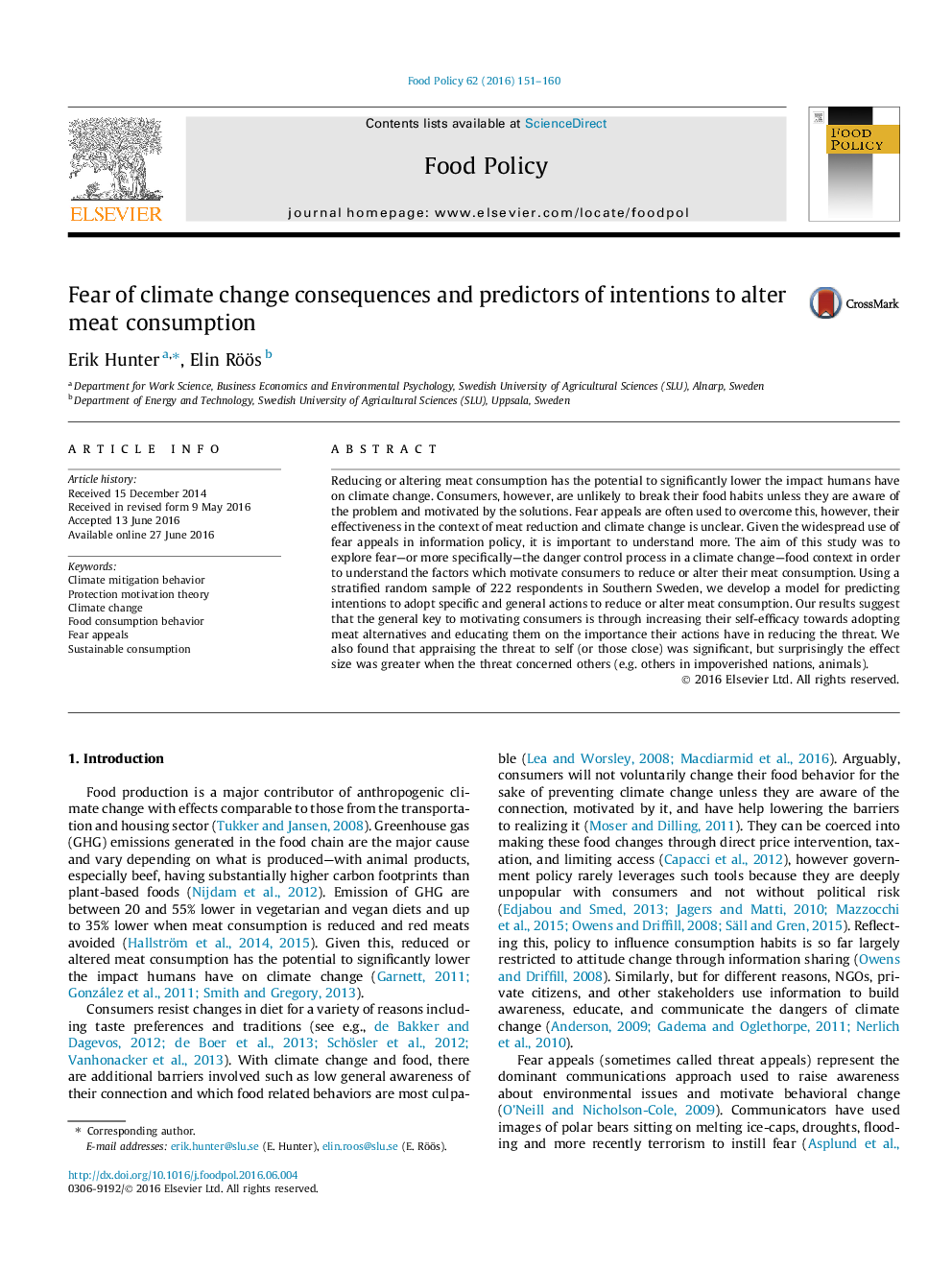| کد مقاله | کد نشریه | سال انتشار | مقاله انگلیسی | نسخه تمام متن |
|---|---|---|---|---|
| 5070143 | 1477014 | 2016 | 10 صفحه PDF | دانلود رایگان |
- Self-efficacy followed by response efficacy best predict reduced meat consumption.
- Threat to others vs self is better predictor of reduced meat consumption.
- Intentions to reduce meat consumption is not predicted by response costs.
- Threats seam to work, but most don't feel threatened.
- Meat reduction strategies should focus more on efficacy than fear.
Reducing or altering meat consumption has the potential to significantly lower the impact humans have on climate change. Consumers, however, are unlikely to break their food habits unless they are aware of the problem and motivated by the solutions. Fear appeals are often used to overcome this, however, their effectiveness in the context of meat reduction and climate change is unclear. Given the widespread use of fear appeals in information policy, it is important to understand more. The aim of this study was to explore fear-or more specifically-the danger control process in a climate change-food context in order to understand the factors which motivate consumers to reduce or alter their meat consumption. Using a stratified random sample of 222 respondents in Southern Sweden, we develop a model for predicting intentions to adopt specific and general actions to reduce or alter meat consumption. Our results suggest that the general key to motivating consumers is through increasing their self-efficacy towards adopting meat alternatives and educating them on the importance their actions have in reducing the threat. We also found that appraising the threat to self (or those close) was significant, but surprisingly the effect size was greater when the threat concerned others (e.g. others in impoverished nations, animals).
Journal: Food Policy - Volume 62, July 2016, Pages 151-160
